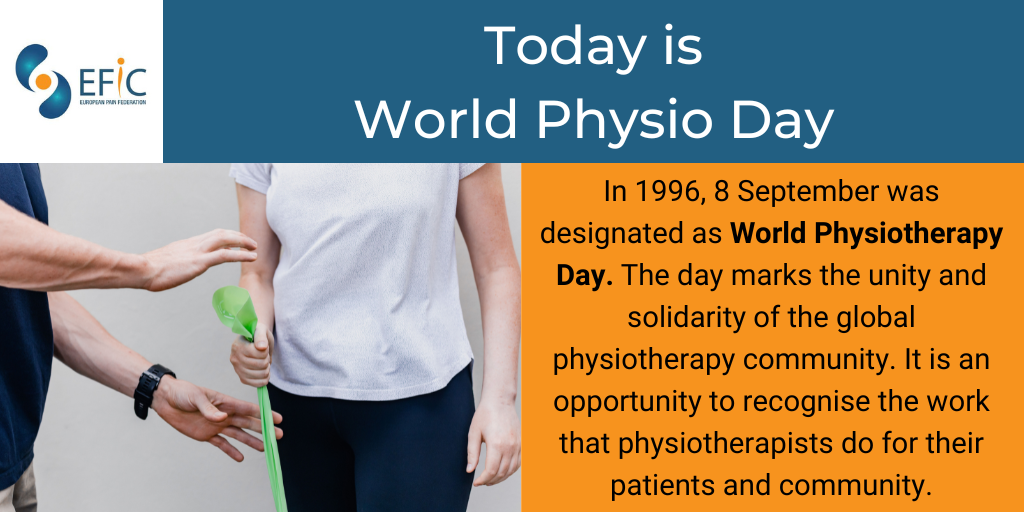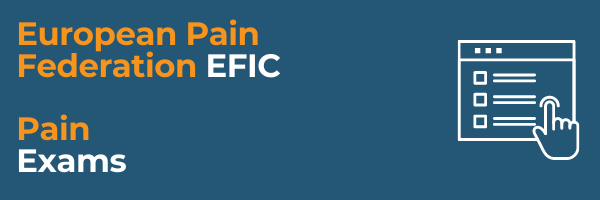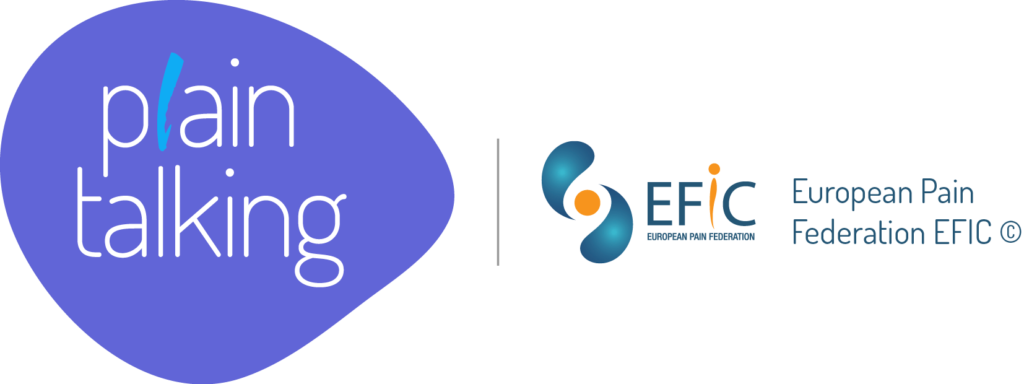Today is #WorldPTDay. It takes place every year on 8 September. It is an opportunity to recognise the work that physiotherapists do for their patients and community.
The theme for this year’s campaign is Osteoarthritis.
Pain due to osteoarthritis (OA) is a leading cause of disability and one of the fastest growing health problems in the world. From 1990 to 2019, the prevalence has risen by 48% globally to 528 million people worldwide exacerbated by population ageing, obesity and physical inactivity.
Many misconceptions exist about osteoarthritis and physiotherapists play a fundamental role in addressing these. One common misconception is that exercise is dangerous for osteoarthritis. However, a strong body of evidence shows that a structured and graded exercise programme is safe, and can reduce pain and disability levels.
For more information and to access the wonderful resources relating to World PT Day visit https://world.physio/wptday
Please allow us to highlight some of EFIC’s resources relevant to physiotherapists:
Physiotherapists interested in keeping up to date with the most contemporary research on pain, including the management of osteoarthritis should complete joining the EFIC Academy. This would give you free access to the EFIC Academy Education Platform. Our Platform includes tailored material to Physiotherapy curriculum, developed by leading European physiotherapy educators specifically with an online learning environment in mind. Learners will be able to pursue self-directed learning or follow specific tracks relevant to needs. Access will be limited to Academy members only.
Physiotherapists interested in upskilling in contemporary pain assessment and treatment can complete the European Pain Federation Diploma in Pain Physiotherapy (EDPP). The EDPP is open to all qualified physiotherapists who see and treat people with pain. This includes physiotherapists qualified to work in a hospital setting, assisting patients with rehabilitation following illness.
Health literacy is a person’s ability to access, understand and use information in ways which promote and maintain good health and is considered a global health issue by the World Health Organisation. It is particularly important for people living with pain to help them understand and actively manage their health. The ‘Plain Talking’ health literacy campaign is targeted at both clinicians and people living with pain. It focuses on improving communication between people living with pain and clinicians by developing a series of materials and useful resources for all. Find out more here.



